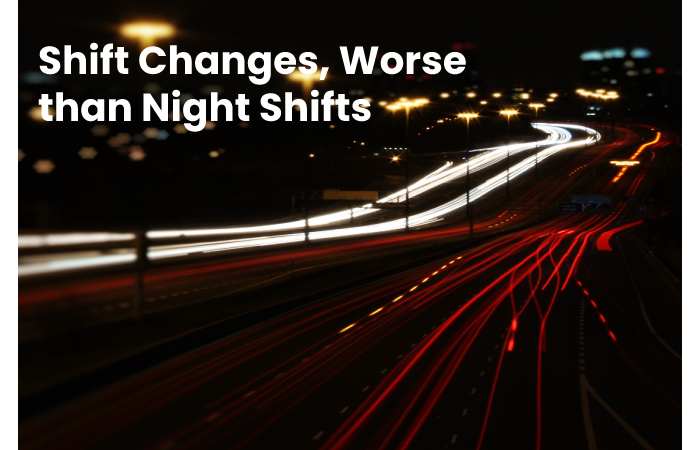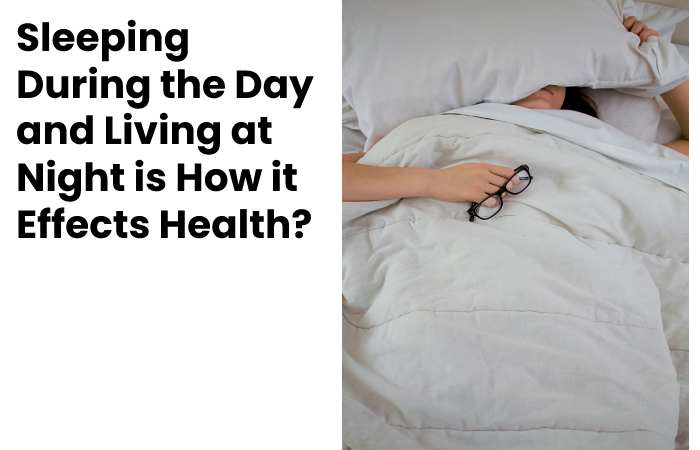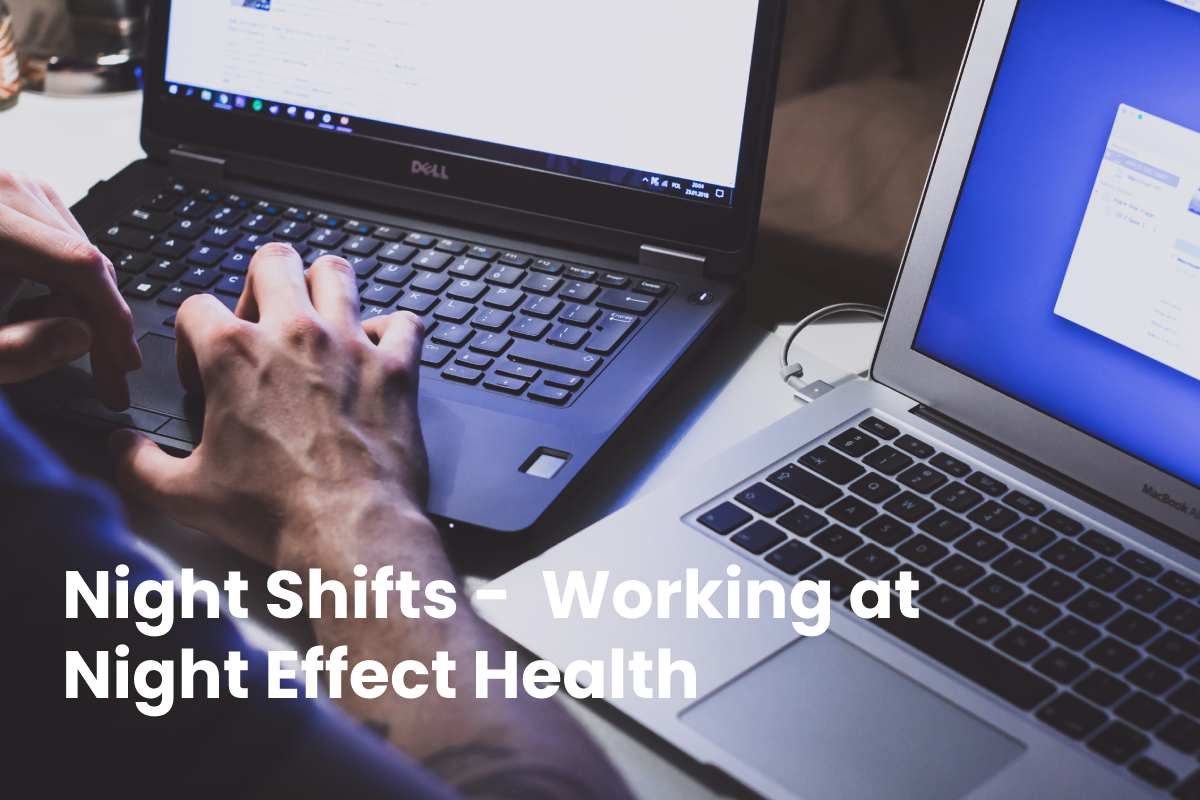Table of Contents
How does Working at Night Effect Health?
Night Shifts – Working at night means that our physical and mental capacities are lower. And staying awake and carrying out a work activity supposes a more significant effort in all senses.
Human beings biologically prepare to live during the day and rest at night. We are diurnal animals. The added wear and tear of working at night. Whether continuously or rotating shifts, takes their toll and can favor the appearance of different physical and mental alterations.
How does Working At Night Effect?
- The International Labor Organization (ILO) estimates that a person who works a night shift will experience premature ageing of five years for every 15 that they work at night. However, the effects of this alteration are not likely to be appreciated until after 5- 10 years of working at night.
- People are generally more alert and perform better between 8:00 and 18:00. After these hours, primarily if you work for more than eight hours, you are more likely to make mistakes, have accidents, and be less productive at work.
- The work schedule not only effects the quantity and quality of sleep but also has repercussions on food. To maintain good health, eating a balanced diet with essential nutrients is necessary for the proper functioning of the body.
- Likewise, food intake must be divided into several meals, preferably hot. People who work at night frequently eat cold, fast foods that do not provide adequate nutrients.
- Upon waking up in the middle of the day, they probably won’t have the appetite for a hot meal and won’t be able to eat it during their night shift. These dietary changes can favor the onset of serious diseases such as diabetes, high blood pressure, or increased cholesterol levels.
Also Read: 1500 Meters to Feet – How to Calculate 1500 Meters to Feet?
What Happens at Night Shifts?
At night, when the body is tired and preparing to sleep, it secretes melatonin, a hormone that helps us relax and fall asleep. After rest, the adrenal glands secrete cortisol, a hormone that keeps us awake, active, and alert.
The secretion of these hormones follows the circadian rhythm, which regulates the production of it at different doses according to the needs of the sleep-wake cycle. When working at night, the body produces relaxing hormones during working hours. It stimulates them during the day when trying to sleep, which can seriously effect both the ability to work and concentrate and the quality and quantity of sleep. It is true that many people who work at night, primarily if they always work at night, adapt to some extent to these changes, but never in the same way.
Also Read: Technology Benefits – Introduction, Technology Benefits, and More
Shift Changes, Worse than Night Shifts

Likewise, constant shift changes are worse for Health because, in this way, the body and hormonal production never manage adapt to the needs of wakefulness and sleep. That is different from the usual ones, which makes the person’s Health suffer plus.
Among people who work the night shift, mood changes are also more frequent than in the general population. Not only because of the physical and hormonal changes that the night shift causes but also the difficulty in socializing. That this time entails, given that when most people are free to mix these people have to go to work at night.
It is widespread for relationships to suffer, especially if the night shift is not shared. As well as relationships with children. In the same way, some daytime activities during the weekend for the children are limited or restricted by the need of the rest of those who work the night shift.
Also Read: Mosquito-Borne Diseases – Introduction, Infections, Treatments
It is now Night Shifts Effects your Health
Night work forces the body to modify its regular rhythm of rest at night and activity during the day, which has a cost on Health.
Until a few years ago, night work was mainly related to shifts in factories, hospitals, drivers, and citizen security professionals. However, over the years, the increasing demand for services has increased the number of jobs performed at night. “Open 24 hours”, “24-hour service,” or “24-hour assistance” have become more and more familiar.
As establish by Spanish legislation, night work is carried out between ten and six in the morning. It dictates that the working day cannot exceed eight hours a day. In a reference average of fifteen days, that workers cannot work overtime. And that they have a specific remuneration known as the salary bonus for night shifts, among others.
Also Read: Probiotic Foods – Introduction, Probiotic Foods, Side Effects
Sleeping During the Day and Living at Night is How it Effects Health?

Despite the special rights of night work, following the hours it imposes takes its toll on Health. And it does it in different ways. One of the main problems of night workers is the lack of sleep. Under normal Conditions, a person spends almost a third of his life asleep.
But with a shift or night job, daytime sleep is much more fragmented and less restful than nighttime. One of the utmost comprehensive studies concludes that sleep loss is notable in night shifts, reaching a reduction of up to two hours per day. People should spend almost a third of their lives asleep if they sleep well, their quality of life increases.
Another problem is related to circadian rhythms, which are the ones that regulate the changes in physical and mental characteristics that occur throughout the day (24 hours). Therefore, one of the most critical physiological problems is that the work, feeding, and sleep phases change. These rhythms can modulate by external factors such as the light-dark cycle and work schedules.
Also Read: 155 kg to Lbs – 155 Kilograms to LBS
Night Shifts – Increases the Risk of Obesity and Cancer
Eating habits also alters with night work. Under normal conditions, three meals a day needs, some of them hot. Work hours directly effect the quantity, quality, and timing of meals. With a night job, it is easier for digestive disorders to appear because you usually eat faster and in a shorter unusual time. According to the National Institute of Safety and Hygiene at Work ( INSHT ). In addition, the night shift usually increases the consumption of coffee and other exciting foods.
The International Agency for Study on Cancer has classified “shift work involving circadian disruption” as a “probable human carcinogen” (Group 2A). In a systematic review on the possible relationship between night shift work and the risk of breast or prostate cancer. The experts conclude that “62.5% of the studies have found an association between night work and the risk of cancer breast and prostate.
However, experts admit that this evidence “remains uncertain” and more epidemiological studies requires, although they advise applying the precautionary principle. According to a study published in the Medical Journal of Australia, 32% of night shift workers suffer from “Shift work Sleep disorder,” which results in excessive sleepiness during wakefulness and sleep. Insomnia during the day worsens the effects of already disrupted sleep patterns.
Also Read: Buccal Fat Removal – Introduction, Causes, Techniques, and More
Night Shifts – Can you Sleep During the Day?

Trying to sleep in the morning or staying awake at night are opposites to the natural sleep-wake rhythm, two aspects of the light-dark cycle. When we have to sleep on an irregular schedule, we work against our body’s clock. And it can be difficult for us to sleep between seven and nine hours, which is what the human body needs.
During the day, a physiological alert process makes it difficult to sleep and contributes to its fragmentation. According to the National Nap Foundation, one-third of shift employees report getting less than six hours of sleep per night on weekdays. And also 30% only get a good night’s sleep.
Also Read: Bladder Health Tips – 15 Hints To Keep Your Bladder Solid
Conclusion
A night job forces us to stay awake in a pattern that is out of sync with our biological clock. During the night, the circadian rhythm produces chemicals that promote sleep, such as melatonin. Hence, staying alert and more productive can be challenging. Melatonin has also been shown to positively effect the body by lowering blood pressure and slowing blood clotting. Which can help prevent heart attacks and strokes.
Also Read: Slip Disc Symptoms – Introduction, Causes, Impacts, and More

